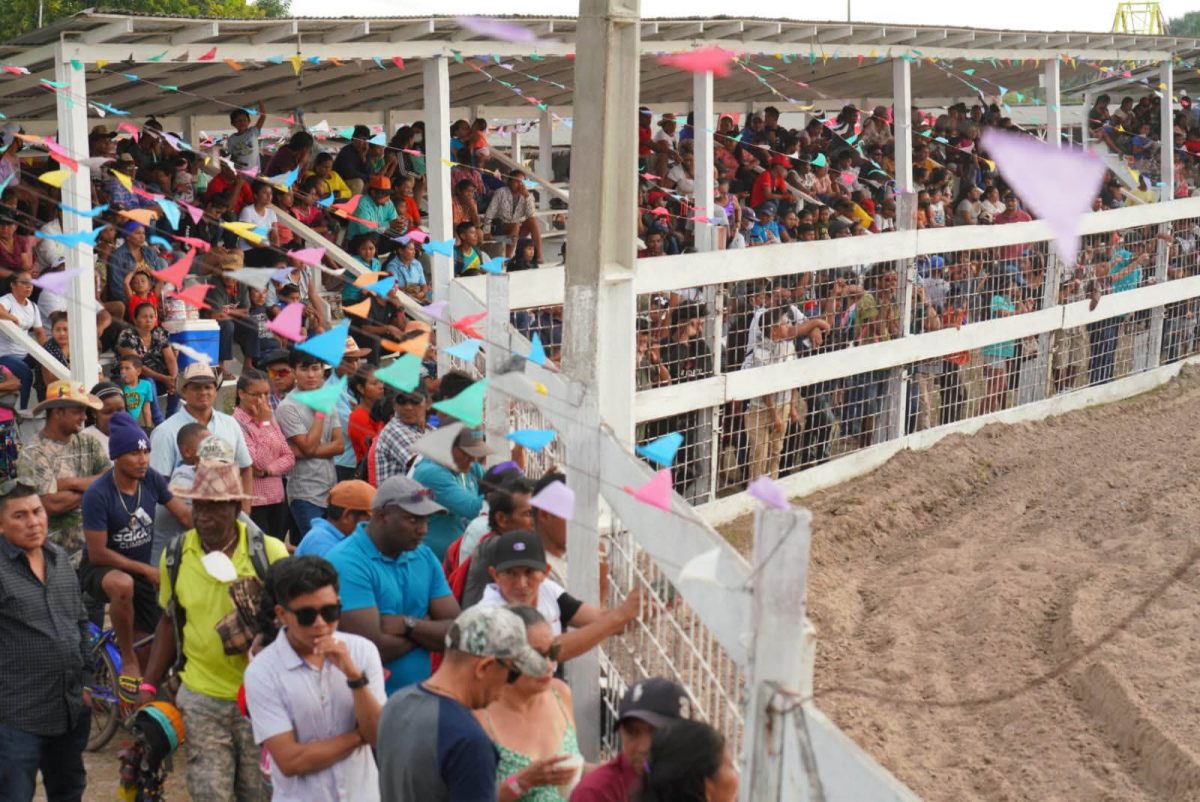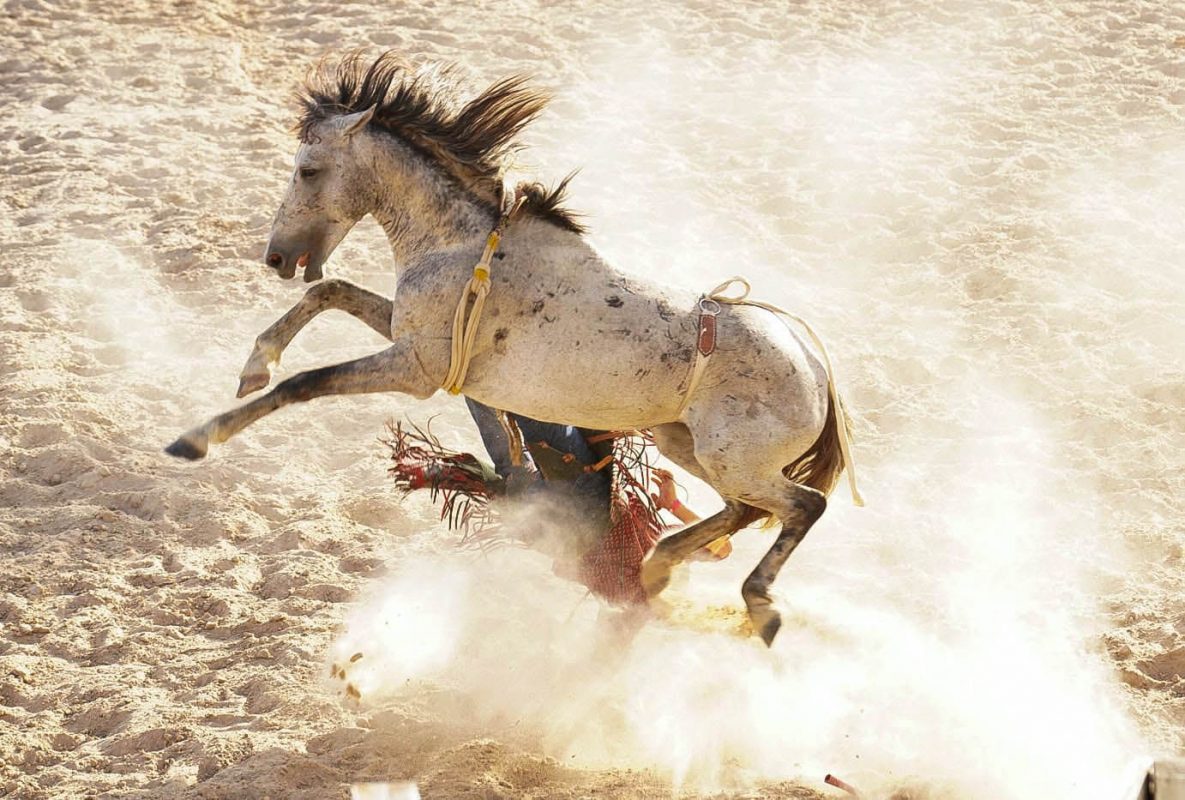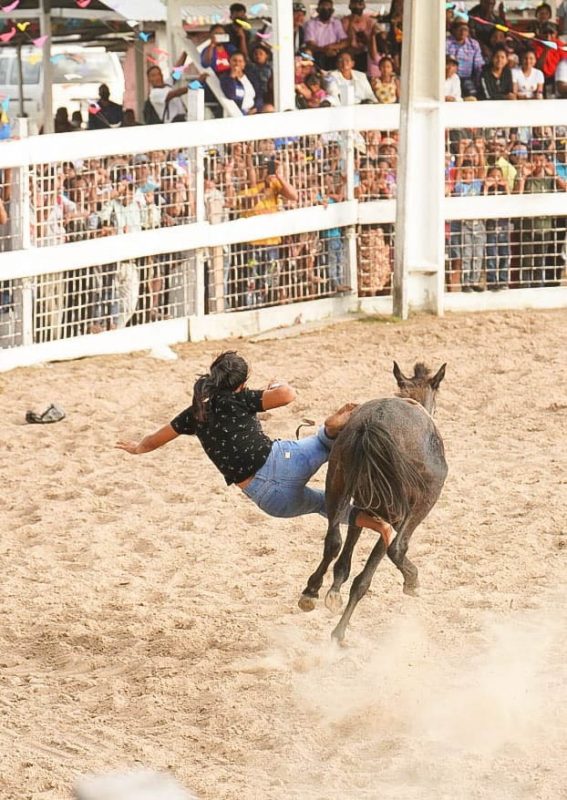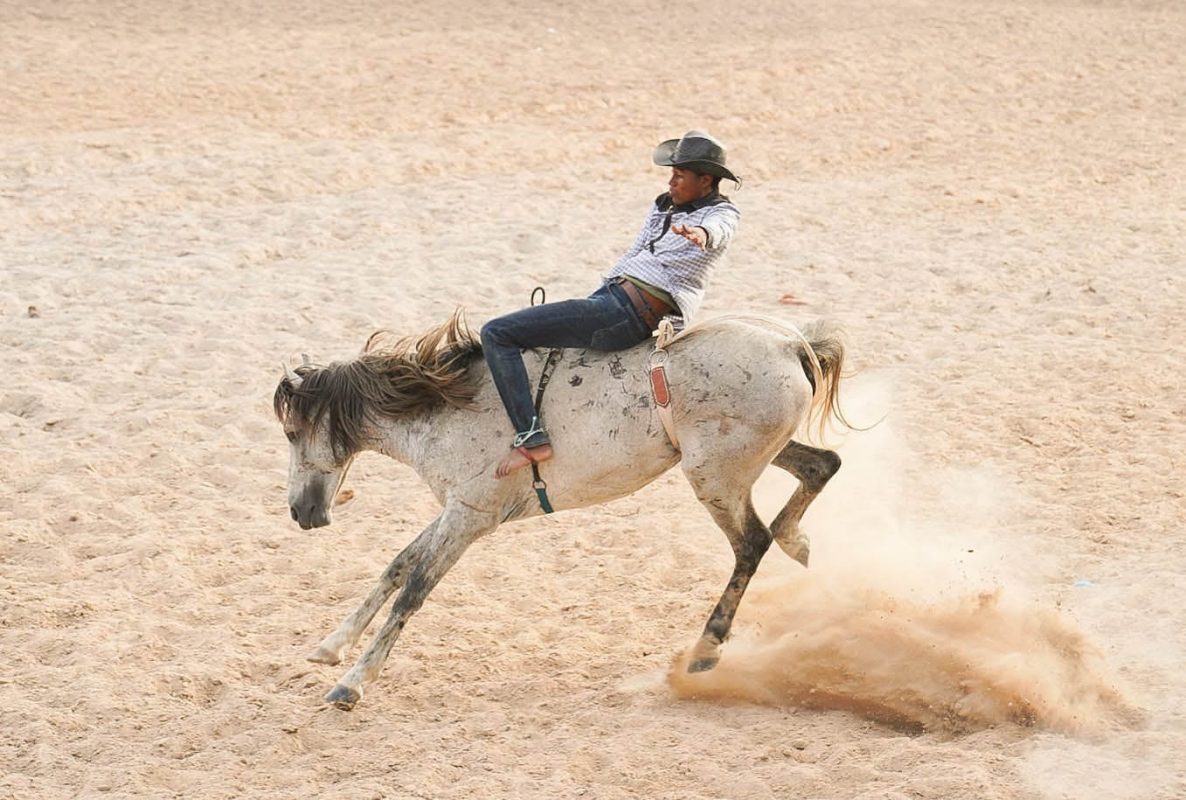When the Stabroek Business paid an extended visit to Region Nine late last year, we had found Lethem and its satellite communities in a condition of less than high spirits, the state of the community’s economy, not least the condition of high unemployment and decline in business in the modest commercial sector and the pressures being felt by the ranching community on account of the intervention of the COVID-19 pandemic that had cost them two successive ‘seasons’ of the Rupununi Rodeo resonating in the outlook of the entire community.
It is difficult to overestimate the extent of the shot in the arm that the Rodeo brings to the Rupununi. Every conceivable business enterprise; from the hotel, food and entertainment sectors to the seasonal vending and odd jobs that attach themselves to the Rodeo, brings something to the Region Nine economy which, over decades, had failed to benefit meaningfully from the incessant promises of socio-economic transformation made by successive political administrations. The communities that we visited late last year, each, in their separate ways, provided evidence of protracted official neglect and the mood of ordinary people suggested that the promises of socio-economic transformation resulting from the country’s oil ‘bonanza’ had either been slow in getting to Region Nine or else it had been greeted with an indifference, even a cynicism, associated with an audience that had been completely worn down by false promises.
The Rupununi is possessed of an economy that runs primarily on small, family-owned businesses, a retail trade which locals share with both Brazilian and Chinese merchants, and small numbers of gold miners and farmers, the latter running farming operations the vast majority of which exist at subsistence level.
The handful of modest hotels in the Region rely largely on public servants visiting the area on official business and on visitors to the Rupununi who travel to the Region in their numbers solely to be part of the Rupununi Rodeo. For the remaining communities comprising the region, the Rupununi Rodeo represents a ‘shot’ in the entire being rather than just a shot in the arm.
The ranchers’ lives are built around their inherited ranches and our interviews last year with mostly second and third generation owners unmistakably bore out the fact that the historic neglect of hinterland development by coastal political administrations has been no myth. Last year, their responses to our questions about their future bared a resignation to the likelihood of further economic doldrums arising out of the loss, for the second consecutive year, of the Rupununi Rodeo.
Those ranch owners with whom we spoke just prior to this year’s rodeo sounded encouraged rather than euphoric over the announcement that the event would be staged this year. Even that, however, was unlikely to compensate for the losses resulting from two successive years of cancellation.
Further, some of the ranchers gave reports of cattle theft, allegedly perpetrated by Brazilians who come from across the border and return with several head of cattle in tow. These complaints, they said, were attended by postures of official indifference.
Outside of the hotel industry, the vast majority of the recurring business activity derives from the retail trade, mostly operated by Brazilian and Chinese merchants. Amerindians residing in communities outside of Lethem support their families through small-scale agricultural pursuits and the provision of modest services.
Inadequate official support for the communities comprising Region Nine has become a repetitive complaint. Some of these come from the subsistence farmers in the small communities who, over the years, never seem to benefit from adequate official responses to requests for material support for their agricultural pursuits. It is the same with the ranchers who, based on this newspaper’s interviews with some of them during our visit towards the end of 2021, voiced complaints centred on a lack of official veterinary support for the Rupununi cattle industry, an absence of official response to the problem of cattle rustling, and no meaningful support for what are costly efforts to effect repairs and renovation to the ranches, some of which are several decades old.
That said, the economic significance of the Rupununi Rodeo would have been more than sufficient to uplift the entire community. The nature of the event and the host of earning opportunities that it generates create an uplifting mood even if the mood is a decidedly temporary one.







